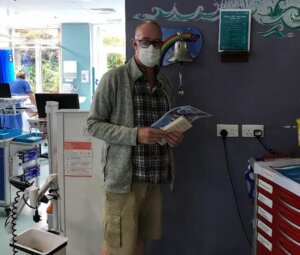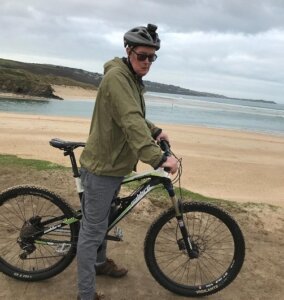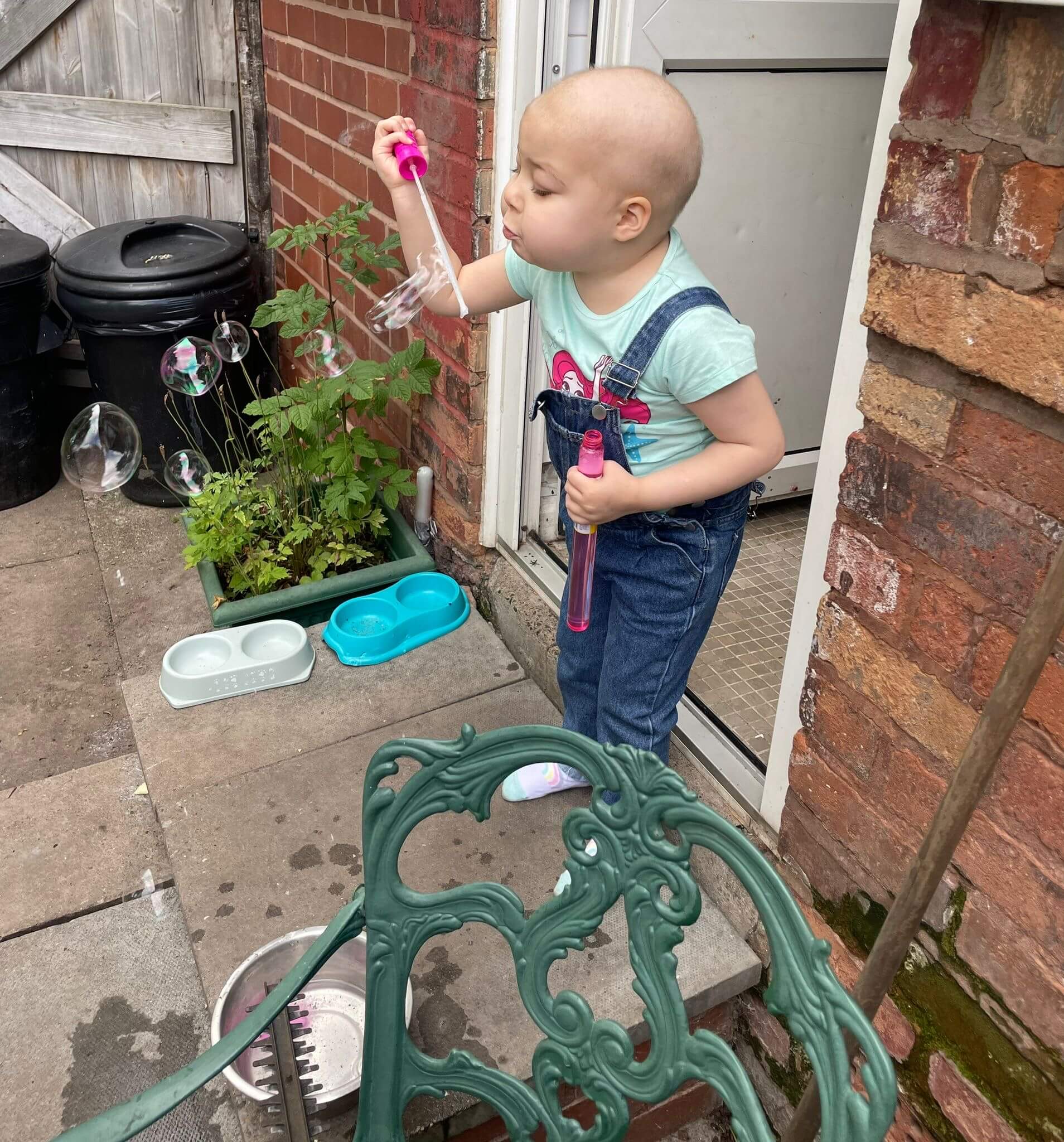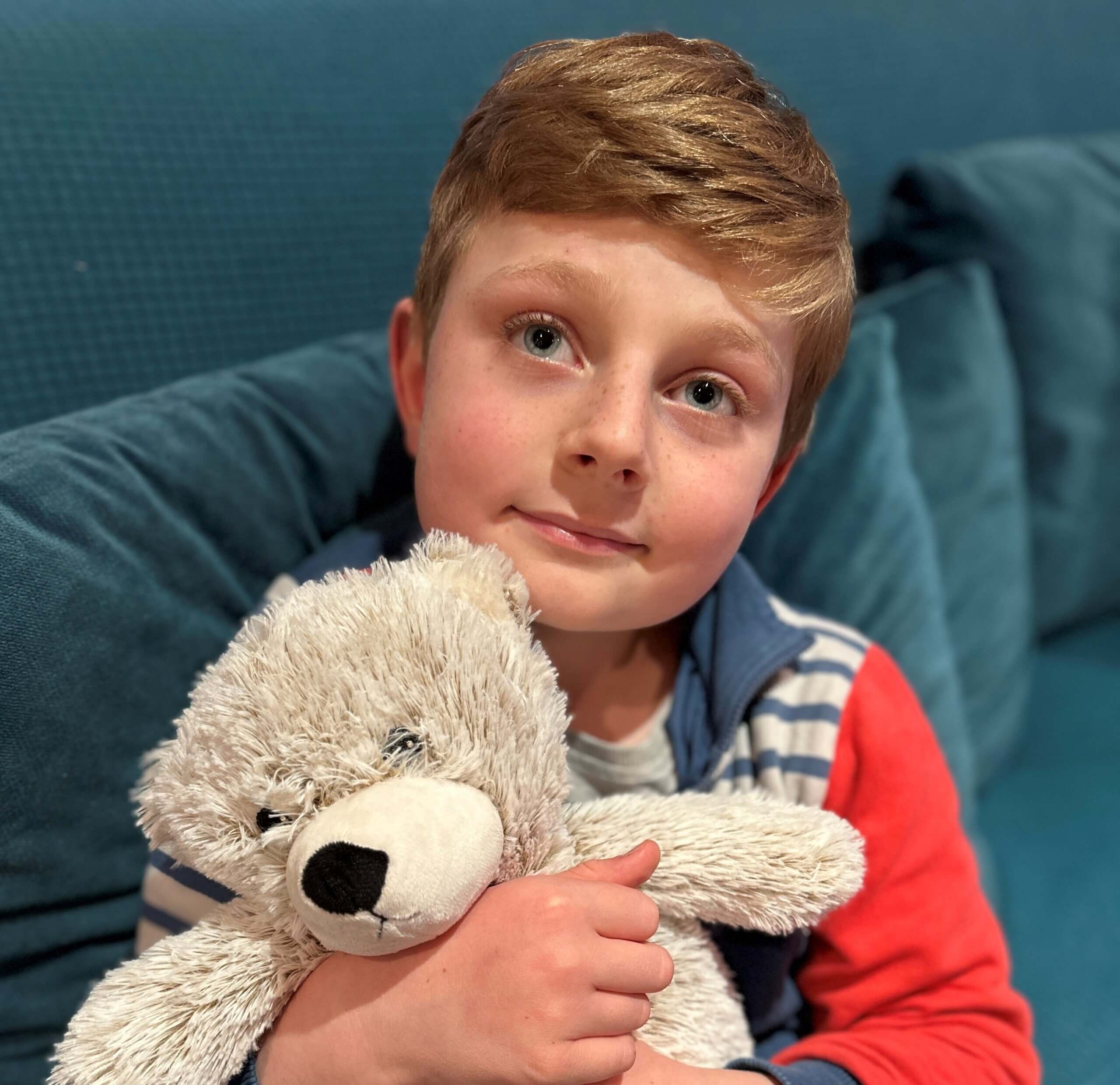
Michael, post treatment in June 2022
When Michael was told he had a rare cancer of the inner ear/parotid in 2019 (stage 3), he thought his consultant was joking. He certainly didn’t expect such a serious diagnosis.
“I’d experienced a persistent debilitating pain in my right ear for several weeks, which failed to improve. Eventually I was admitted to hospital for treatment with intravenous antibiotics. A CT scan revealed the presence of cancer in my ear, side of my face, skull and parotid gland. It was not possible to remove it surgically, but the consultant said it would probably respond to radiotherapy and chemotherapy.”
For six weeks Michael received weekly chemo and daily radiotherapy treatment. “Chemo didn’t cause me any problems, but the radiotherapy was awful. I got terribly burnt and I was so tired. I just wanted to sleep for 20 hours a day.”
Treatment finished in April 2019. But then in June, an MRI scan revealed that his cancer was still there. “It was terrible news to hear, but my consultant immediately started me on a new immunotherapy drug, which had only been tried on about 800 people “worldwide.

Michael at his final Immunotherapy session
“A few days after the first infusion, I lost all sense of balance and fell down the stairs at home. I spent the next six weeks in hospital hovering between life and death, asleep most of the time.
“I was unable to walk and lost all sensation and muscle control in the right side of my face. I look like I’ve had a stroke.
In addition, nerve damage affected Michael’s hearing in his right ear and he lost the sight in his right eye. He started to lose his memory, too, and his hand co-ordination was impacted so he couldn’t write.
“I lost the ability to swallow and had to have a feeding tube inserted into my stomach, so I could be fed by a machine.
“After the second infusion, I started to get a little bit better. My wife came to the hospital every day to help feed and clean me. Eventually, with help from a physiotherapist, I was able to walk a few steps again. but stairs were totally impossible.
“After the third treatment I started to look brighter and feel stronger.
“After six weeks I was well enough to go home where I continued to improve, graduating from a wheelchair to a walking frame, then to Nordic poles and now I just use a walking stick.

Michael cycling post treatment
“In January 2020 the feeding tube was removed and now I can do just about everything I used to do. I can eat, write, use the phone, wash and shower etc. My sense of balance has improved dramatically, too. However, I still can’t use my right eye and I’m deaf in my right ear. But I can walk long distances, ride a bike and can even swim.
“Immunotherapy continued until the end of July 2021 and, according to my consultant, I have shown a complete response to this treatment.
“Regular MRI scans show that my condition, so far, is completely stable, with no sign of the cancer.
“However, when treatment finished I felt very alone and scared. Because of this I decided to join Cancer Support UK’s Cancer Coach programme.
“I found the online meetings helpful, as the coach introduced us to a number of different useful strategies to cope with handling feelings and mental health, post-treatment.
“It was also therapeutic to hear other people’s cancer journey stories and to share mine.

Michael before he was affected by cancer
“My attitude now is not to worry too much about the future and to make the most of every day. I’ve certainly become more philosophical about all sorts of things that used to bother me. I now realise that good health is the most important thing we possess and I feel incredibly lucky that I’m still here.”
The Cancer Coach programme is available to anyone previously diagnosed with a stage 3 or below cancer and who has now completed their physical cancer treatment and is experiencing low mood, anxiety, worry, and who doesn’t know how to move forward in their recovery. The course takes participants through a series of weekly facilitated group sessions, run for a six-week period over the telephone or online video. Participants benefit from the peer support of the sessions, as well as learning tools and techniques for improving emotional wellbeing, which can help them on their recovery journey. The course is free, completely confidential and accessible from the comfort and privacy of home. If you’ve completed cancer treatment and are wondering how to cope, then please apply to join the course. Simply complete the application form online. If you have any questions, please email cancercoach@cancersupportuk.org or call: 020 3983 7616.



